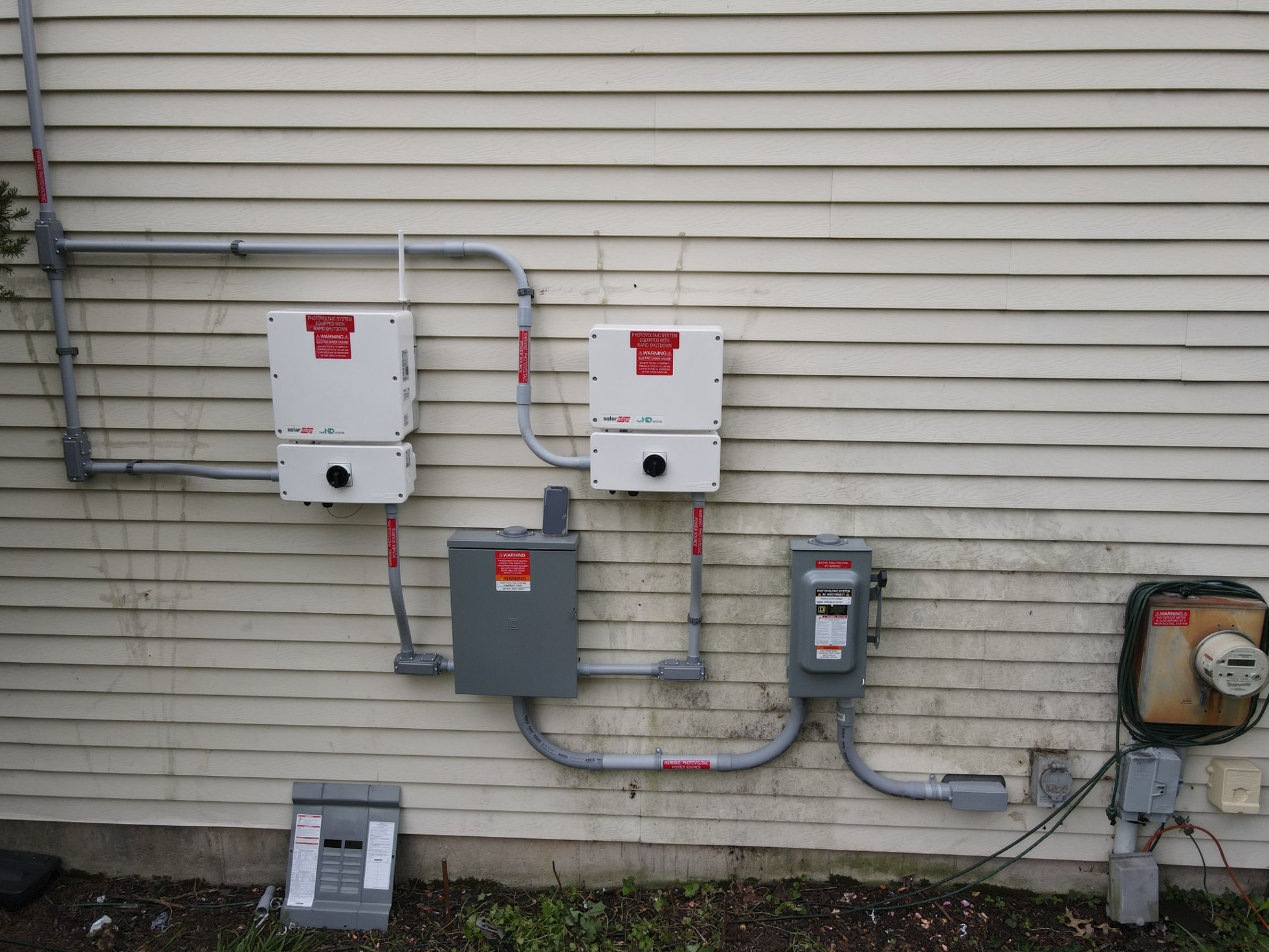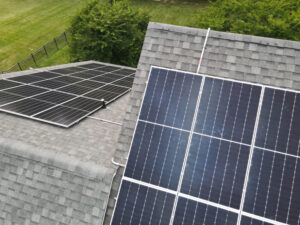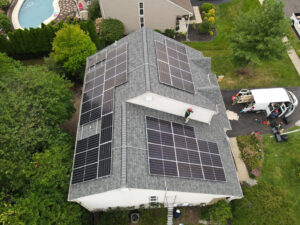Introduction to Power Panels
Definition and Importance
Power panels, essential for distributing electricity within a building, act as the central hub for electrical systems. They ensure electricity is safely and efficiently routed to various parts of a property. By housing circuit breakers, they protect against overloads and short circuits. Their role is pivotal in maintaining electrical safety and functionality.
Brief Overview of Types
There are three primary types of power panels: residential, commercial, and industrial. Each is tailored to the specific demands of its environment, from homes to large-scale industrial facilities. Residential panels are designed for everyday household needs, while commercial panels cater to businesses with higher power requirements. Industrial panels are built for durability and high-capacity use in manufacturing and production environments.
Types of Power Panels
Residential Power Panels
Residential power panels manage the distribution of electricity in homes, safeguarding against electrical hazards. They accommodate the energy needs of household appliances and lighting, featuring circuit breakers to prevent circuit overloads. Typically smaller than their commercial and industrial counterparts, these panels are crucial for home safety. Regular inspections and maintenance can help ensure they function efficiently.
Commercial Power Panels
Commercial power panels are engineered to handle the increased electrical loads of business premises, including offices, retail spaces, and service industries. They are more robust than residential panels, offering additional circuits and features for commercial applications. These panels must accommodate a wide range of devices and often support complex wiring systems. Maintenance and compliance with safety standards are essential for operational integrity.
Industrial Power Panels
Designed for the most demanding environments, industrial power panels support heavy machinery and large-scale production operations. They are characterized by their high capacity and durability, often customized to suit specific industrial needs. These panels can handle significant electrical loads and are critical in minimizing downtime in manufacturing settings. Regular maintenance is vital to ensure safety and efficiency in these high-stake environments.
Key Components of Power Panels
Circuit Breakers
Circuit breakers serve as crucial safety devices in power panels, designed to automatically halt the flow of electricity in case of overload or short circuit, protecting wiring and preventing fires. They are segmented by different amperage ratings to match the needs of specific circuits within a building. Users can manually reset them after tripping, which makes troubleshooting electrical issues more manageable. Regular inspection of circuit breakers helps ensure they function correctly and safely.
Power Meter
The power meter is an essential component that measures the amount of electricity consumed by a property, providing insights into energy usage patterns. It helps homeowners and businesses track their electricity consumption, facilitating better energy management and cost savings. Modern power meters can transmit data to utility companies for accurate billing and remote monitoring. They play a pivotal role in energy conservation efforts by encouraging more mindful usage of electrical resources.
Main Breaker
The main breaker acts as the gatekeeper for a power panel, controlling the overall flow of electricity from the utility service into a building’s electrical system. It has the highest amperage rating within the panel, capable of shutting down the entire system for maintenance or in emergencies. The main breaker is essential for protecting the entire electrical circuit from overloading and potential hazards. Its location at the top or bottom of the panel makes it easily accessible for quick management of electrical supply.
Bus Bars
Bus bars are thick strips of conductive metal, typically copper or aluminum, that distribute electricity from the main breaker to individual circuit breakers within the panel. They play a critical role in the efficient and uniform distribution of power across all circuits. Their robust design ensures minimal resistance, allowing for optimal electrical flow and reducing heat buildup within the panel. Regular inspection and maintenance of bus bars are essential to prevent corrosion and ensure the integrity of the electrical distribution system.
How Power Panels Work
Electrical Flow Through a Panel
Electricity enters a power panel through the main breaker, which controls access to the entire electrical system of a property. From there, it’s distributed to individual circuits via bus bars, each protected by a circuit breaker tailored to the circuit’s maximum load. This organized flow ensures that electricity reaches every part of the building efficiently and safely. The systematic distribution also simplifies troubleshooting and maintenance by clearly defining electrical paths.
Role in Electrical Safety
Power panels are foundational to electrical safety in any property, acting as the primary checkpoint for managing and mitigating risks associated with electricity. By housing circuit breakers, they prevent potential overloads and short circuits, significantly reducing the risk of electrical fires. The main breaker within the panel provides a means to completely disconnect the electrical supply, allowing for safe maintenance and emergency control. Regular inspections ensure the panel and its components function correctly, maintaining a safe electrical environment.
Choosing the Right Power Panel
For Your Home
Choosing the right power panel for your home involves considering current electricity needs and potential future upgrades or expansions. A residential panel should have enough capacity to handle additional appliances or renovations without risking overload. Safety features, such as arc-fault circuit interrupters (AFCIs), can provide added protection against electrical fires. Consulting with a professional electrician can help homeowners select a panel that meets their needs while ensuring safety and compliance with local electrical codes.
For Your Business
For businesses, selecting a power panel that can accommodate the higher electrical loads of commercial operations is crucial. It must also offer flexibility for future growth, such as adding more circuits for new equipment or expanding physical space. Energy efficiency and reliability are key considerations, as downtime due to electrical issues can significantly impact operations and profits. A commercial-grade power panel, installed and maintained by certified professionals, can support business continuity and safety.
For Industrial Applications
Industrial power panels are engineered to withstand the rigorous demands of manufacturing, processing, and other heavy-duty applications. They must be capable of handling very high electrical loads and providing reliable power to machinery and production lines. Customization for specific industrial needs, including provisions for extreme conditions and the integration of renewable energy sources, may be necessary. Durability, scalability, and ease of maintenance are essential features to ensure uninterrupted industrial operations and safety.
Maintenance and Safety Precautions
Regular Maintenance Tips
To ensure the long-term reliability of your power panel, regular maintenance is essential. This includes checking for any signs of wear and tear, ensuring all connections are tight to prevent arcing, and verifying that circuit breakers are functioning properly. It’s also important to keep the panel area clear of obstructions and to ensure it remains dry and free from moisture. Scheduled inspections by a professional electrician can help identify and resolve issues before they lead to more serious problems.
Safety Precautions
When dealing with power panels, safety should always be the top priority. Always turn off the main breaker before performing any work on the panel to eliminate the risk of electric shock. It’s crucial to use insulated tools and wear protective gear, such as gloves and eye protection, when working near electrical components. Never attempt to repair or alter the panel yourself if you’re not a certified electrician; instead, call a professional to handle any issues safely and competently.
Conclusion
Understanding power panels is crucial for ensuring electrical safety and efficiency across residential, commercial, and industrial settings. Emphasizing the importance of professional installation, regular maintenance, and strict adherence to safety measures can prevent hazards and extend the system’s lifespan. This guide aims to equip readers with an essential knowledge to make informed decisions about their electrical infrastructure, enhancing both safety and operational efficiency.
Ready to elevate the safety and efficiency of your electrical system with a state-of-the-art power panel? Visit us today to explore our comprehensive range of power panel solutions, designed for every application. Whether you’re upgrading your home, optimizing your business, or industrializing your operations, let Sunwise USA power your success with reliability and excellence.







